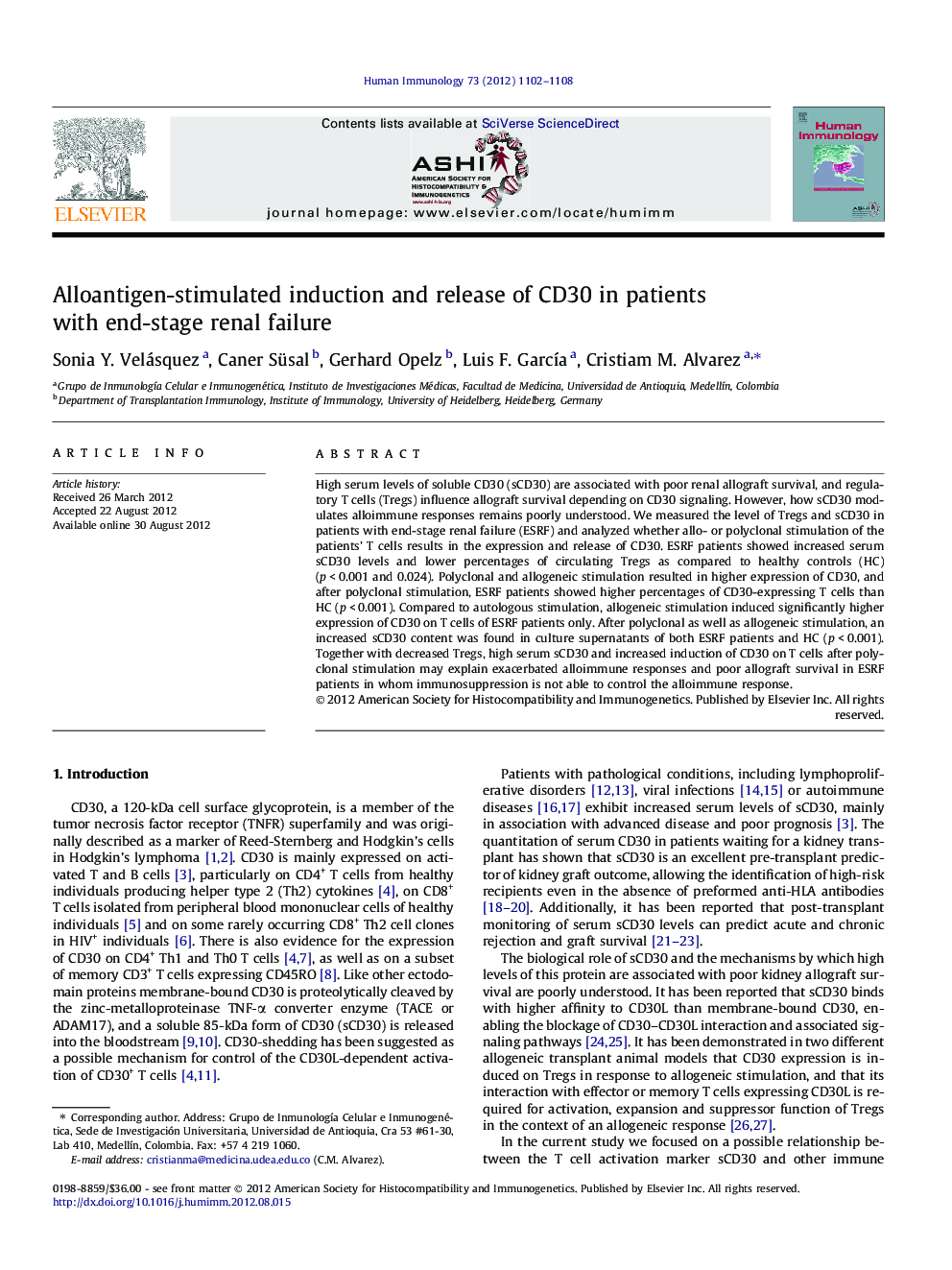| Article ID | Journal | Published Year | Pages | File Type |
|---|---|---|---|---|
| 3350946 | Human Immunology | 2012 | 7 Pages |
High serum levels of soluble CD30 (sCD30) are associated with poor renal allograft survival, and regulatory T cells (Tregs) influence allograft survival depending on CD30 signaling. However, how sCD30 modulates alloimmune responses remains poorly understood. We measured the level of Tregs and sCD30 in patients with end-stage renal failure (ESRF) and analyzed whether allo- or polyclonal stimulation of the patients’ T cells results in the expression and release of CD30. ESRF patients showed increased serum sCD30 levels and lower percentages of circulating Tregs as compared to healthy controls (HC) (p < 0.001 and 0.024). Polyclonal and allogeneic stimulation resulted in higher expression of CD30, and after polyclonal stimulation, ESRF patients showed higher percentages of CD30-expressing T cells than HC (p < 0.001). Compared to autologous stimulation, allogeneic stimulation induced significantly higher expression of CD30 on T cells of ESRF patients only. After polyclonal as well as allogeneic stimulation, an increased sCD30 content was found in culture supernatants of both ESRF patients and HC (p < 0.001). Together with decreased Tregs, high serum sCD30 and increased induction of CD30 on T cells after polyclonal stimulation may explain exacerbated alloimmune responses and poor allograft survival in ESRF patients in whom immunosuppression is not able to control the alloimmune response.
